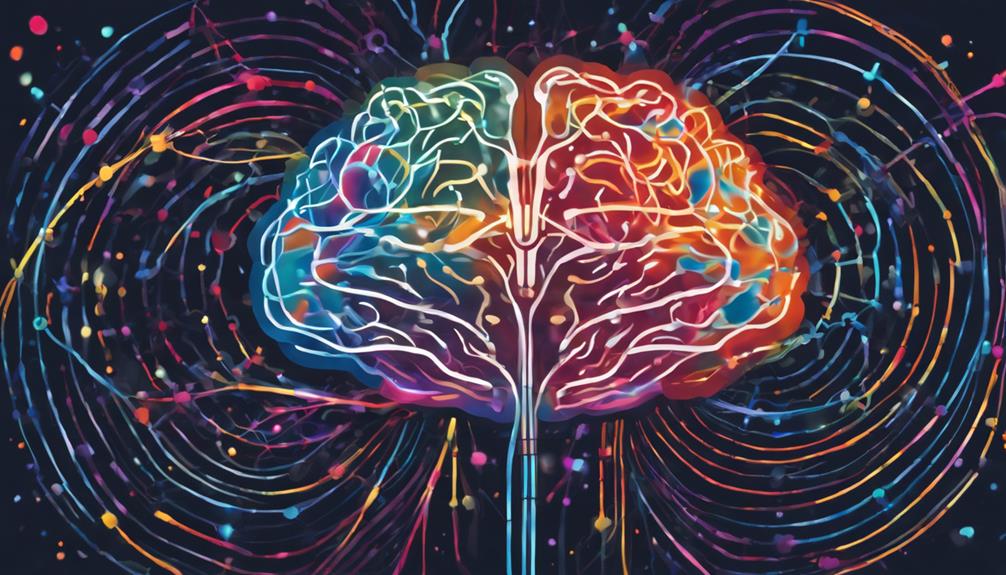Neuroscientific research uncovers how hypnosis influences brain activity, revealing shifts in neural functioning, connectivity changes, and altered cognitive processes during hypnotic trance. The prefrontal cortex plays a crucial role in modulating cognitive functions and attention networks, showcasing the brain's complexity in responding to suggestion. This research delves into unique mental conditions, neural plasticity, and individual differences in hypnotizability, offering profound insights into the therapeutic potential of hypnosis for conditions like chronic pain and anxiety disorders. These findings revolutionize our understanding of hypnosis as a powerful modality for cognitive modulation and could pave the way for personalized interventions.
Brain Activity During Hypnosis
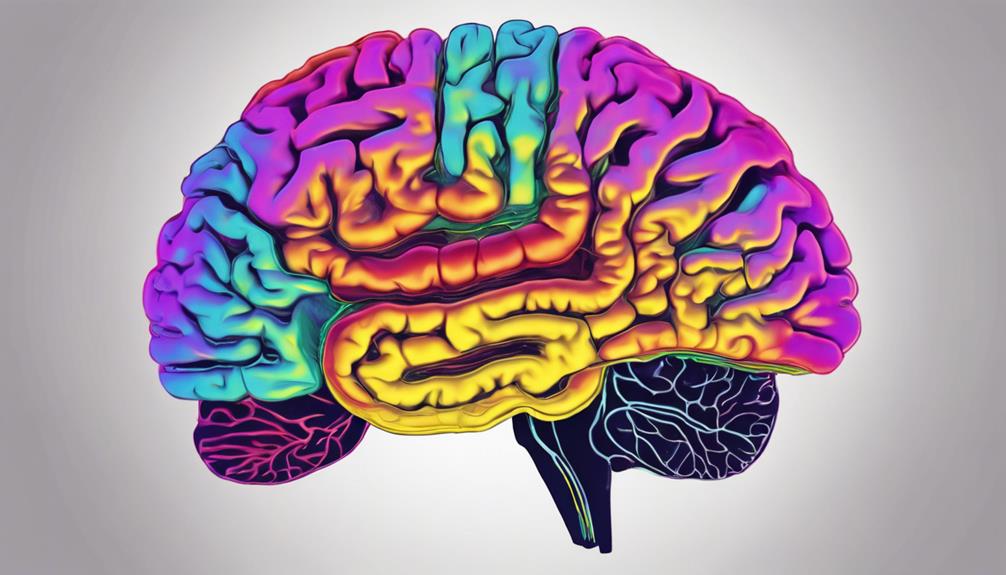
During hypnosis, there is a noticeable shift in brain activity patterns that have been studied extensively by neuroscientists. When individuals enter a hypnotic trance, there are observable changes in neural functioning associated with cognitive processing.
Research has shown that different brain regions are activated or deactivated during hypnosis compared to normal waking consciousness. Specifically, areas related to attention, control of movement, and higher-order cognitive functions exhibit altered activity levels.
One key aspect of brain activity during hypnosis is the increased connectivity between regions responsible for executive control and those involved in sensory processing. This heightened connectivity suggests a reorganization of neural networks that may underlie the focused attention and suggestibility commonly experienced during hypnotic states.
Furthermore, neuroimaging studies have indicated reduced activity in the default mode network, which is associated with self-referential thoughts and mind-wandering, during hypnosis. This suppression of the default mode network may contribute to the heightened receptivity to suggestions and the immersive experiences reported by individuals in a hypnotic trance.
Neural Correlates of Suggestion
The neural correlates of suggestion have been a focal point of research aimed at understanding the mechanisms underlying the influence of verbal cues on cognitive processes.
Studies have shown that suggestion processing involves a complex interplay of brain regions associated with cognitive control. When individuals are exposed to suggestions, regions involved in cognitive control such as the prefrontal cortex are activated. These areas play a crucial role in evaluating the incoming information, regulating attention, and inhibiting irrelevant or conflicting responses.
Functional magnetic resonance imaging (fMRI) studies have demonstrated increased activity in the dorsolateral prefrontal cortex during suggestion processing tasks. This suggests that cognitive control mechanisms are engaged to assess the relevance and validity of the suggestions presented.
Additionally, connectivity studies have highlighted the importance of networks involving the prefrontal cortex, parietal regions, and the anterior cingulate cortex in mediating the effects of suggestions on behavior and cognition.
Understanding the neural underpinnings of suggestion processing provides valuable insights into how verbal cues can modulate cognitive processes and influence behavior.
Altered States of Consciousness
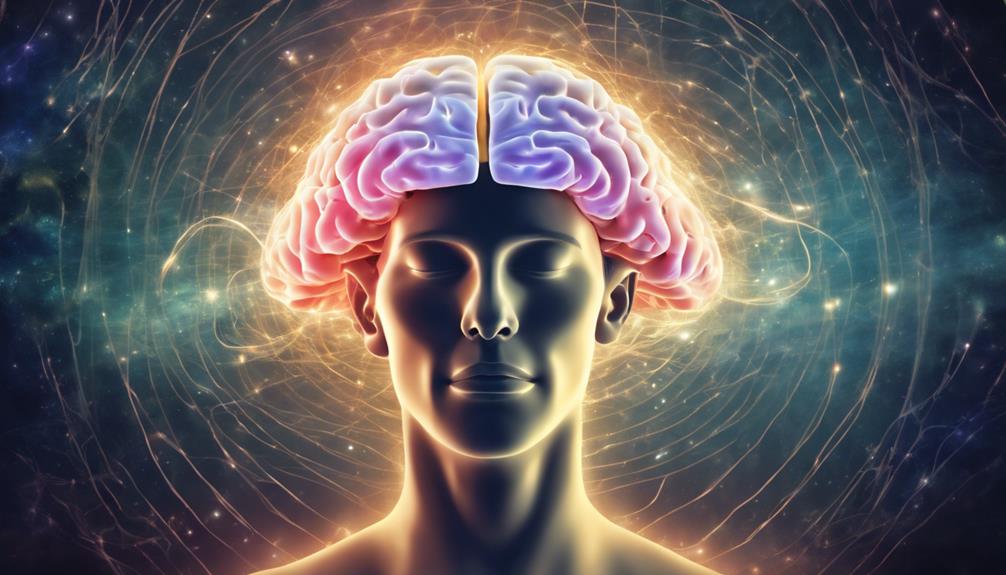
Altered states of consciousness represent unique mental conditions characterized by deviations from ordinary wakeful awareness, which have intrigued researchers across various disciplines seeking to unravel their underlying mechanisms.
In the context of hypnosis phenomena, individuals in a hypnotic trance often exhibit altered perception and cognitive processes. During hypnosis, there is a shift in sensory integration, leading to changes in how individuals perceive and process information. This altered state can result in heightened suggestibility and a focused attention on specific stimuli, influencing cognitive functions such as memory and decision-making.
Research suggests that altered states of consciousness, like those induced during hypnosis, involve complex neural networks and neurotransmitter systems. These states can impact brain activity patterns, altering the functioning of regions associated with attention, memory, and self-awareness.
Understanding the neural underpinnings of altered states of consciousness sheds light on the intricate interplay between brain mechanisms and subjective experiences during hypnosis, offering valuable insights into the nature of consciousness and cognitive functioning.
Role of the Prefrontal Cortex
Exploring the neural implications of hypnosis phenomena reveals a significant focus on the prefrontal cortex's involvement in modulating cognitive functions and subjective experiences.
The prefrontal cortex, a region implicated in executive functions and cognitive control, plays a crucial role in mediating the effects of hypnosis on perception, attention, and memory. Studies using neuroimaging techniques have shown increased prefrontal cortex activity during hypnotic states, suggesting its involvement in regulating higher-order cognitive processes.
The prefrontal cortex's executive functions, which encompass abilities such as decision-making, planning, and self-regulation, are closely linked to the modulation of hypnotic responses. By influencing attentional mechanisms and cognitive control processes, this brain region may contribute to the suggestibility and altered states of consciousness experienced during hypnosis.
Furthermore, individual differences in prefrontal cortex activity have been associated with variations in hypnotic susceptibility, highlighting the significance of this brain region in shaping hypnotic phenomena. Understanding the role of the prefrontal cortex provides valuable insights into the neural mechanisms underlying hypnosis and its effects on cognition and behavior.
Modulation of Attention Networks
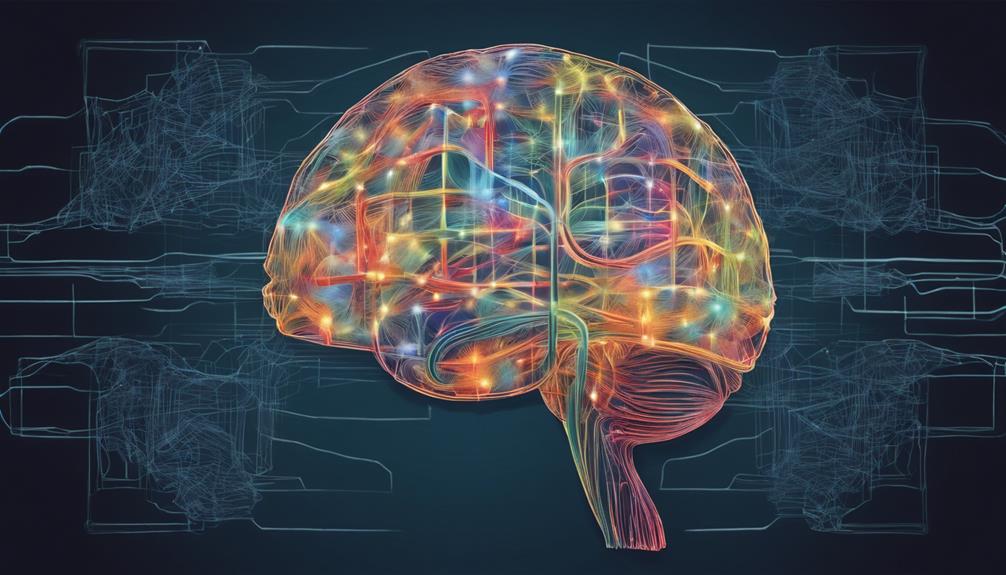
Understanding how hypnosis modulates attention networks sheds light on the neural mechanisms underlying altered states of consciousness. Attention modulation, a key aspect of cognitive control, plays a crucial role in hypnotic phenomena.
Research suggests that during hypnosis, there is a shift in attentional focus, where individuals exhibit heightened concentration on specific stimuli while filtering out distractions. This selective attention can be attributed to the modulation of attention networks in the brain, particularly involving regions such as the prefrontal cortex and parietal regions.
In hypnotic states, there is a reorganization of neural activity within these attention networks, leading to alterations in cognitive control processes. By influencing attentional mechanisms, hypnosis can impact perception, memory, and suggestibility.
Studies using neuroimaging techniques have shown changes in neural connectivity and activity patterns associated with attention modulation during hypnosis, providing valuable insights into the neural underpinnings of hypnotic phenomena.
Understanding how hypnosis affects attention networks enhances our knowledge of altered states of consciousness and the intricate interplay between attention modulation and cognitive control in the brain.
Neuroplasticity in Hypnotic States
Neuroplasticity in hypnotic states reveals the brain's capacity to adapt and reorganize its neural circuits in response to hypnotic suggestions and experiences. The mechanisms underlying neuroplasticity in hypnotic states involve changes in synaptic strength, structural alterations in neuronal connections, and the formation of new neural pathways. These neuroplastic changes are essential for the integration of hypnotic learning effects, such as increased suggestibility, altered perception, and the ability to control physiological responses.
During hypnosis, the brain exhibits heightened plasticity, allowing for the encoding of hypnotic suggestions into long-term memory and the establishment of new cognitive patterns. Studies have shown that individuals in hypnotic states display altered brain activity in regions associated with attention, memory, and self-awareness, reflecting the neuroplastic changes taking place.
Understanding the neuroplasticity mechanisms in hypnotic states not only sheds light on the brain's incredible adaptability but also provides insights into how hypnosis can be utilized for therapeutic purposes, cognitive enhancement, and the modulation of various psychological and physiological functions.
Suggestions for Future Research
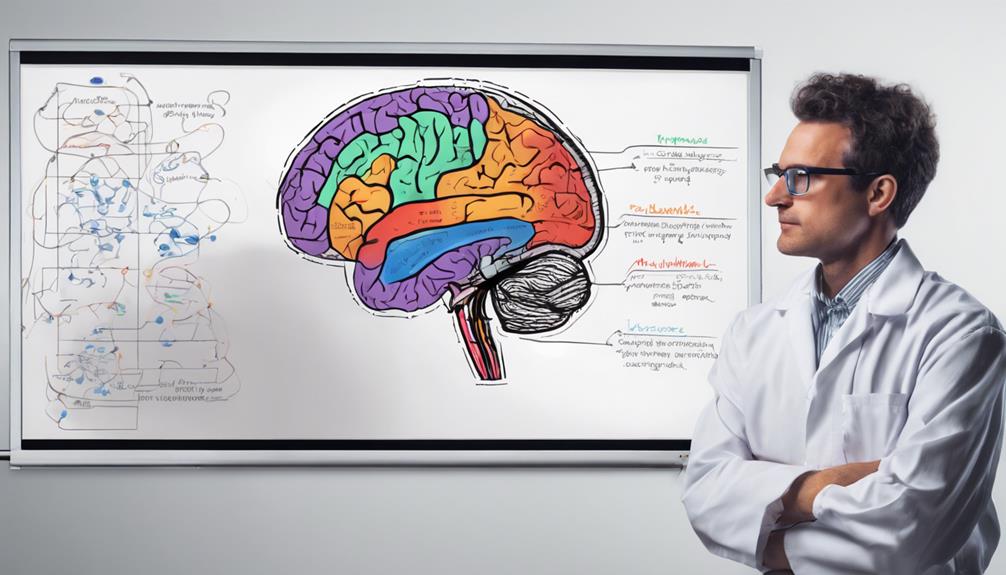
Future investigations could focus on elucidating the specific neural mechanisms that underlie the modulation of cognitive functions during hypnotic states, offering a deeper understanding of the potential therapeutic applications of hypnosis therapy.
By delving into the realm of cognitive neuroscience, researchers could explore how hypnosis impacts various cognitive processes such as attention, memory, and perception. Understanding the neural correlates of these cognitive changes could provide valuable insights into how hypnosis can be utilized as a therapeutic tool for conditions like chronic pain, anxiety disorders, and addiction.
Moreover, future research could investigate individual differences in hypnotizability and how these differences are reflected in neural activity and connectivity patterns. This line of inquiry could lead to the development of personalized hypnosis interventions tailored to an individual's neural profile, optimizing treatment outcomes.
Additionally, exploring the long-term effects of hypnosis therapy on brain structure and function could shed light on its potential as a sustainable treatment option for various psychological and neurological conditions. By bridging the gap between hypnosis therapy and cognitive neuroscience, future studies have the potential to revolutionize our understanding and utilization of hypnosis as a therapeutic modality.
Frequently Asked Questions
Can Hypnosis Be Used to Enhance Memory Recall?
Hypnosis has shown potential in enhancing memory recall by positively impacting cognitive performance. Research suggests that hypnosis can facilitate the retrieval of memories through focused attention and suggestion, offering a promising avenue for memory enhancement.
Is There a Genetic Predisposition to Being Susceptible to Hypnosis?
Research suggests that genetic influences may play a role in an individual's susceptibility to hypnosis. Understanding these genetic factors could shed light on how cognitive abilities interact with hypnosis, potentially impacting therapeutic outcomes.
How Does Hypnosis Affect Emotional Regulation in the Brain?
Hypnosis can modulate brain activity, influencing emotional processing. Studies suggest that during hypnosis, neural pathways related to emotion regulation are engaged, potentially leading to changes in emotional responses and behaviors in individuals.
Can Hypnosis Be Used to Treat Chronic Pain Effectively?
Hypnosis has shown promise in pain management for chronic conditions as an alternative therapy. Research suggests its potential for pain relief through altering perception and processing of pain signals in the brain.
Are There Long-Term Effects of Frequent Hypnosis Sessions on the Brain?
Frequent hypnosis sessions may induce long-term effects on the brain, potentially influencing brain plasticity and cognitive function. Research suggests that sustained hypnosis practice could lead to alterations in neural pathways, impacting cognitive processes over time.
Conclusion
In conclusion, neuroscientific research into hypnosis phenomena has provided valuable insights into the brain activity, neural correlates of suggestion, altered states of consciousness, the role of the prefrontal cortex, modulation of attention networks, and neuroplasticity in hypnotic states.
Future research should continue to explore these areas to deepen our understanding of the mechanisms underlying hypnosis and its potential applications in various fields.

